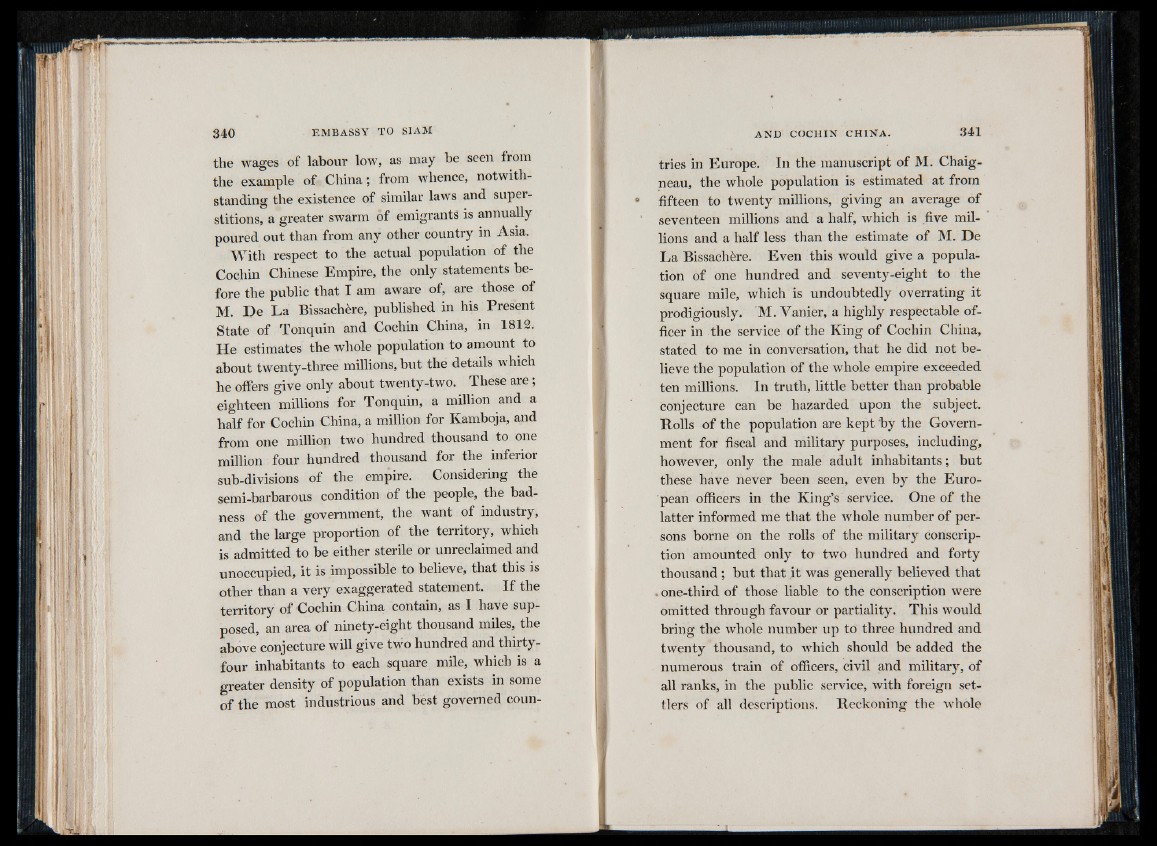
the wages of labour low, as may be seen from
the example of China; from whence, notwithstanding
the existence of similar laws and superstitions,
a greater swarm of emigrants is annually
poured out than from any other country in Asia.
With respect to the actual population of the
Cochin Chinese Empire, the only statements before
the public that I am aware of, are those of
M. De La Bissach^re, published in his Present
State of Tonquin and Cochin China, in 1812.
He estimates the whole population to amount to
about twenty-three millions, but the details which
he offers give only about twenty-two. These are;
eighteen millions for Tonquin, a million and a
half for Cochin China, a million for Kamboja, and
from one million two hundred thousand to one
million four hundred thousand for the inferior
sub-divisions of the empire. Considering the
semi-barbarous condition of the people, the badness
of the government, the want of industry,
and the large proportion of the territory, which
is admitted to be either sterile or unreclaimed and
unoccupied, it is impossible to believe, that this is
other than a very exaggerated statement. I f the
territory of Cochin China contain, as I have supposed,
an area of ninety-eight thousand miles, the
above conjecture will give two hundred and thirty-
four inhabitants to each square mile, which is a
greater density of population than exists in some
of the most industrious and best governed countries
in Europe. In the manuscript of M. Chaig-
neau, the whole population is estimated at from
fifteen to twenty millions, giving an average of
seventeen millions and a half, which is .five millions
and a half less than the estimate of M. De
La Bissachere. Even this would give a population
of one hundred and seventy-eight to the
square mile, which is undoubtedly overrating it
prodigiously. M. Vanier, a highly respectable officer
in the service of the King of Cochin China,
stated to me in conversation, that he did not believe
the population of the whole empire exceeded
ten millions. In truth, little better than probable
conjecture can be hazarded upon the subject.
Rolls of the population are kept by the Government
for fiscal and military purposes, including,
however, only the male adult inhabitants; but
these have never been seen, even by the European
officers in the King’s service. One of the
latter informed me that the whole number of persons
borne on the rolls of the military conscription
amounted only to two hundred and forty
thousand ; but that it was generally believed that
. one-third of those liable to the conscription were
omitted through favour or partiality. This would
bring the whole number up to three hundred and
twenty thousand, to which should be added the
numerous train of officers, civil and military, of
all ranks, in the public service, with foreign settlers
of all descriptions. Reckoning the whole